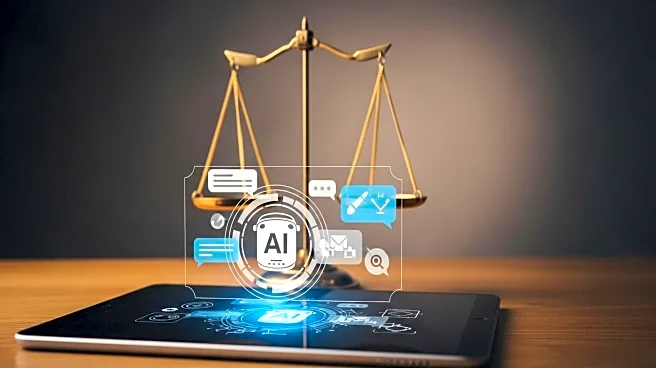What is the story about?
What's Happening?
AI chatbots, such as ChatGPT, are increasingly being used by individuals representing themselves in court. Some litigants have found success using AI to draft court documents and research legal precedents. However, legal professionals warn that AI-generated documents often contain inaccuracies and fabricated information, known as 'hallucinations.' These errors can lead to dismissals and sanctions, as seen in cases where litigants cited nonexistent case law. Despite these challenges, some self-represented litigants continue to use AI tools, believing they provide access to legal resources otherwise unavailable due to financial constraints.
Why It's Important?
The use of AI chatbots in legal proceedings highlights the potential for technology to democratize access to legal resources, especially for those unable to afford traditional legal representation. However, the inaccuracies and fabrications generated by AI pose significant risks, potentially undermining the integrity of legal processes. Legal professionals express concern over the misuse of AI, which can waste court resources and lead to sanctions against litigants. The situation underscores the need for improved AI accuracy and regulatory oversight to ensure that technology aids rather than hinders justice.
What's Next?
As AI continues to be integrated into legal practices, there may be increased efforts to educate self-represented litigants on how to effectively use AI tools without compromising their cases. Legal clinics are beginning to offer classes on AI usage, focusing on fact-checking and verification. Additionally, there may be calls for stricter regulations and guidelines on AI use in legal settings to prevent the spread of misinformation. The legal community may also explore ways to harness AI's potential while mitigating its risks, potentially leading to new standards for AI-generated legal documents.
Beyond the Headlines
The ethical implications of AI in legal settings are profound, raising questions about the balance between technological advancement and the preservation of legal integrity. The reliance on AI by self-represented litigants could shift the dynamics of legal representation, potentially leading to a future where AI plays a central role in small claims courts. However, this shift requires careful consideration of the ethical and legal standards governing AI use, ensuring that technology serves as a tool for justice rather than a source of confusion.
















